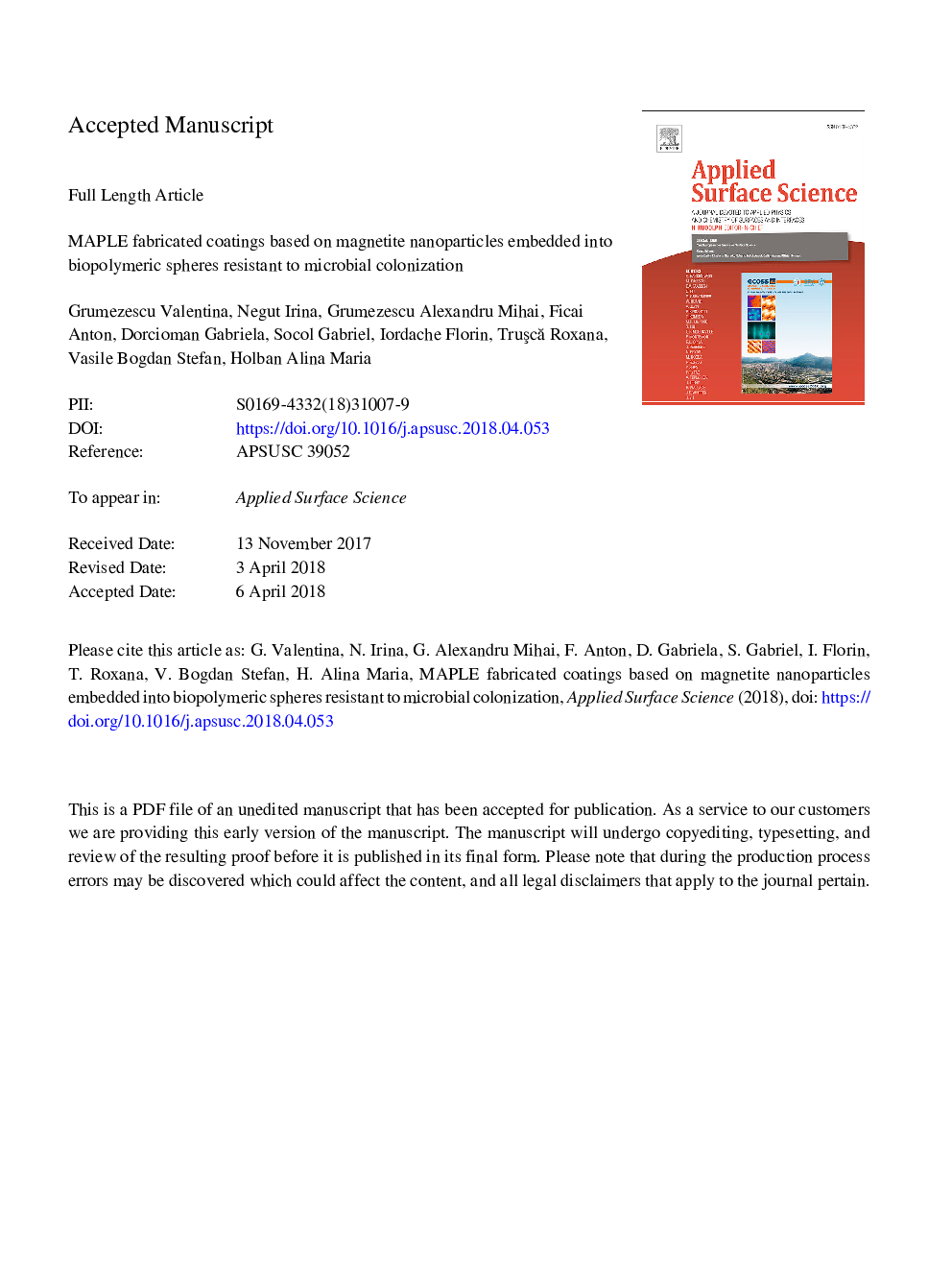| Article ID | Journal | Published Year | Pages | File Type |
|---|---|---|---|---|
| 7833771 | Applied Surface Science | 2018 | 26 Pages |
Abstract
The aim of this study was to obtain improved coatings for advanced surfaces with increased biocompatibility and resistance to microbial colonization and biofilm formation. The prepared magnetite nanoparticles functionalized with gentamicin (Fe3O4@G) have been embedded into poly(lactic-co-glycolic acid) (PLGA) spheres by oil-in-water emulsion. The PLGA-Fe3O4@G spheres were deposited on glass and silicone surfaces by Matrix Assisted Pulsed Laser Evaporation (MAPLE) technique. The obtained thin coatings were analyzed by Scanning Electron Microscopy (SEM) and Infrared Microscopy (IRM). The antimicrobial and antibiofilm efficiency of coatings was tested with respect to Gram-positive (Staphylococcus aureus) and Gram-negative (Pseudomonas aeruginosa) clinical strains by viable cells counts assay, performed at different time intervals. The obtained results proved that coatings based on PLGA-Fe3O4@G spheres exhibited an efficient antimicrobial activity against both adherent and sessile bacterial cells. Besides their excellent anti-adherence and antibiofilm effect, the obtained MAPLE-deposited coatings were highly biocompatible, allowing the normal development and growth of cultured human amniotic fluid stem cells. This approach could be successfully applied for the optimization of medical surfaces in order to control and prevent microbial colonization and further development of biofilm associated infections.
Related Topics
Physical Sciences and Engineering
Chemistry
Physical and Theoretical Chemistry
Authors
Valentina Grumezescu, Irina Negut, Alexandru Mihai Grumezescu, Anton Ficai, Gabriela Dorcioman, Gabriel Socol, Florin Iordache, Roxana TruÅcÄ, Bogdan Stefan Vasile, Alina Maria Holban,
